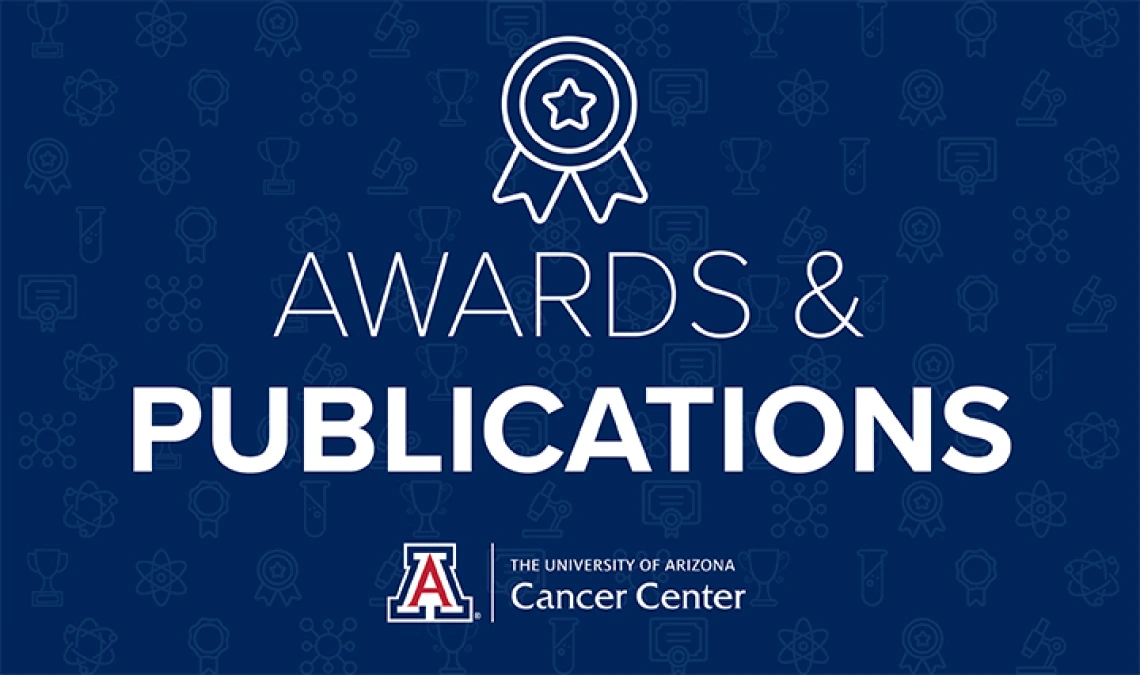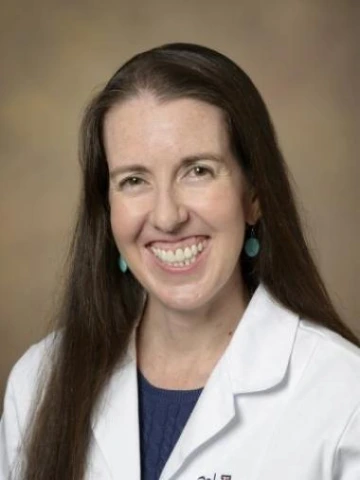UArizona Cancer Center Awards & Publications (November 2020)
Finding Tomorrow’s Treatments, Today Awards Update: November 2020

Awards Update: November 2020

Jennifer Erdrich, MD, MPH
Cancer Prevention and Control Program, Research Member
Project Title: Addressing Breast Cancer Health Disparities in American Indians Through Translational and Dissemination/Implementation Science
Grant Number: 3U54CA143924-12S1
Administering Institute: National Cancer Institute (NCI)
Funding: $170,497 (1 year)
Project Research: The project award is a supplement to the UArizona Cancer Center’s U54 funding for the Partnership for Native American Cancer Prevention (NACP). Dr. Erdrich’s project is geared toward breast cancer basic science as well as community education on breast cancer screening and research. The first aim entails translational science with William R. Montfort, PhD, and his chemistry team, which has been examining the role of nitric oxide in the tumor microenvironment of triple negative breast cancer. The second aim entails dissemination and implementation science as mentored by Cynthia A. Thomson, PhD, through which we plan to develop a community forum that engages Native American tribal members in the messaging and distribution of breast cancer screening services and related research activity. Southern Arizona’s tribes suffer cancer disparities with greater mortality for most cancers, even those for which Native people have lower incidence. Because of this, the project strives to increase screening for age-eligible tribal members, and by earlier detection, we can improve the disparities in stage at diagnosis, which affects the disparities in mortality.”
Dr. Erdrich Says: “Native American woman suffer greater disparities when it comes to breast cancer mortality. Screening is underutilized for this community. I was first primarily interested in working at the community level to try to increase the uptake of breast cancer screening, but as I delved into the topic more and met my mentors, I started to understand that I need to work at both the basic science and community levels to have greater impact.”

Kirsten Limesand, PhD
Professor of Nutritional Sciences
Assistant Dean of Graduate Education, CALS
Cancer Biology Program, Research Member
Project Title: Metabolic Dysregulation During Radiation-Induced Salivary Gland Dysfunction
Grant Number: 1R21DE029506-01A1
Administering Institute: National Institute of Dental & Craniofacial Research (NIDCR)
Funding: $422,125 (2 years)
Project Research: Despite technological advancements in cancer therapies, collateral damage to salivary glands remains a significant problem for head and neck cancer patients and severely diminishes their quality of life. Radiation is a common treatment in most cases and results in the long-term loss of saliva for more than 73% of patients. The resulting lack of salivary gland function results in significant adverse side effects, which diminish the effectiveness of anti-cancer therapies, and decreases the quality of life for these patients. The long-term goal of Dr. Limesand’s proposal is to understand changes in metabolism in irradiated salivary glands, and these studies could have the potential to find new therapies to restore salivary gland function to patients with chronic dry mouth.
In March 2018, Dr. Limesand met with UArizona Cancer Center members Megha Padi, PhD, and Jessica Martinez, PhD, to determine if they could conduct a pilot analysis combining two types of data (transcriptomics and metabolomics) from a single time point in their experimental mouse model. The interesting results they generated led them to further pursue funding to expand the time points in their model and evaluate specific changes in glucose metabolism that were suggested from the pilot experiment. In the future, they intend to incorporate saliva samples from a biospecimen bank recently initiated by Julie E. Bauman, MD, MPH. The samples will come from patients with head and neck cancers before, during, and after radiotherapy.
Dr. Limesand Says: “The consequences of radiation-induced salivary gland hypofunction include increased dental caries, reduced taste and smell, malnutrition, and increased risk for oral infections and mucositis. Our proposal will investigate the metabolic alterations in irradiated salivary glands incorporating a multi-omics (transcriptomics and metabolomics) approach. Outcomes of this work are anticipated to identify novel interactions between genes and metabolites that may lead to new therapeutic interventions.”

Donna Zhang, PhD
Musil Family Endowed Chair in Drug Discovery
Associate Director of Superfund Research Program
Professor of Pharmacology and Toxicology
Cancer Prevention and Control Program, Research Member
Project Title: NRF Transcription Factors in Environmental Stress and Disease Intervention
Grant Number: R35ES031575-01
Administering Institute: National Institute of Environmental Health Sciences (NIEHS)
Funding: $7.32 million (8 years)
Project Research: Exposure to arsenic affects 160 million people worldwide, increasing the risk of developing cancer and diabetes. Dr. Zhang studies how arsenic induces diseases, with the goal of identifying new pharmaceuticals to prevent or treat adverse health effects resulting from arsenic exposure. She has discovered that constant activation of NRF2, a protein that controls key aspects of the cell’s defense system by maintaining cellular redox and metabolic balance, can drive cancer progression, metastasis, and resistance to therapy, as well as promote a pro-diabetic shift in metabolism, all of which occur following chronic, low-dose arsenic exposure. Read more.
Dr. Zhang Says: “The goals of this project are to characterize the molecular bases of diseases associated with arsenic exposure, and to identify ways in which NRF2, as well as the other NRF protein family members (NRF1 and NRF3), can be effectively harnessed to prevent or treat arsenic-induced lung cancer and Type II diabetes.”




